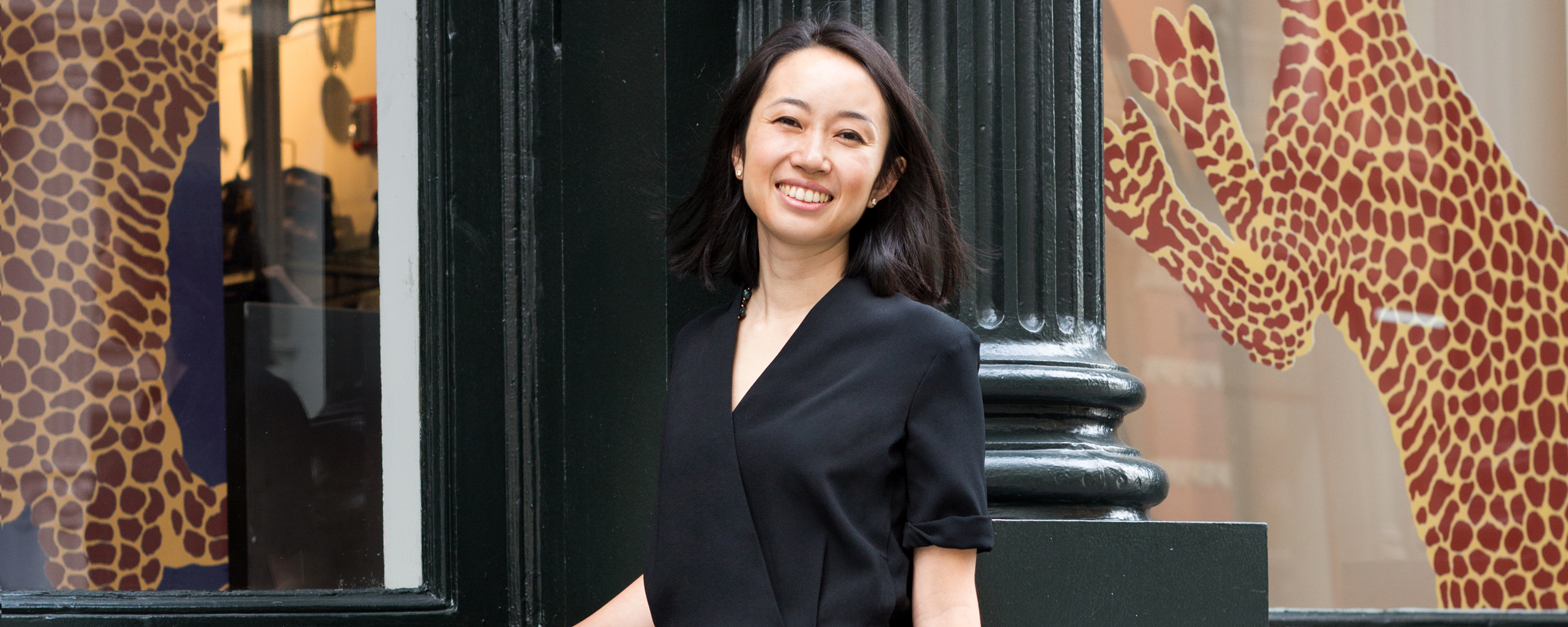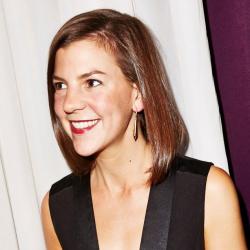NYCLU Lawyer Mariko Hirose Talks Civil Rights, Foster Dogs, and Gender Discrimination
September 24, 2016 | Filed in: Woman of the Week
We love taking a peek into the lives (and closets) of our fascinating customers. This week, we spoke to Mariko Hirose, a dragon-slaying civil rights lawyer who has worked on groundbreaking cases in gender discrimination, LGBT rights, and privacy and technology issues. (She’s also a proud owner of the Kira, Tory, and Maria dresses.) Here, she talks about surveillance regulation, fostering dogs (!), and invalidating the Defense of Marriage Act.
I WORK as a lawyer for the New York Civil Liberties Union [NYCLU], which is the New York affiliate of the American Civil Liberties Union [ACLU]. I’ve been there for about four and a half years now. Our organization works on civil rights and civil liberties issues that come up in New York state, which can range from free speech and privacy to criminal justice. Right now I focus mainly on privacy and technology, and what kinds of regulations should be in place to ensure that privacy is protected. There are a lot of questions around transparency and oversight for local police and government agencies in relation to powerful surveillance technology. It’s a fascinating area because there are new issues popping up every day. We have to change our approach to privacy—we used to be talking about paper, and now we’re talking about tons of data that we generate every day.
PRIVACY PROTECTION has always been interesting to me. When I was young, I had a school assignment where we had to catalogue what was in our garbage. It was an environmental science exercise. And I remember my mom being really upset about it, and saying it was an invasion of our privacy. It’s funny now, but it’s a concept that stuck with me.
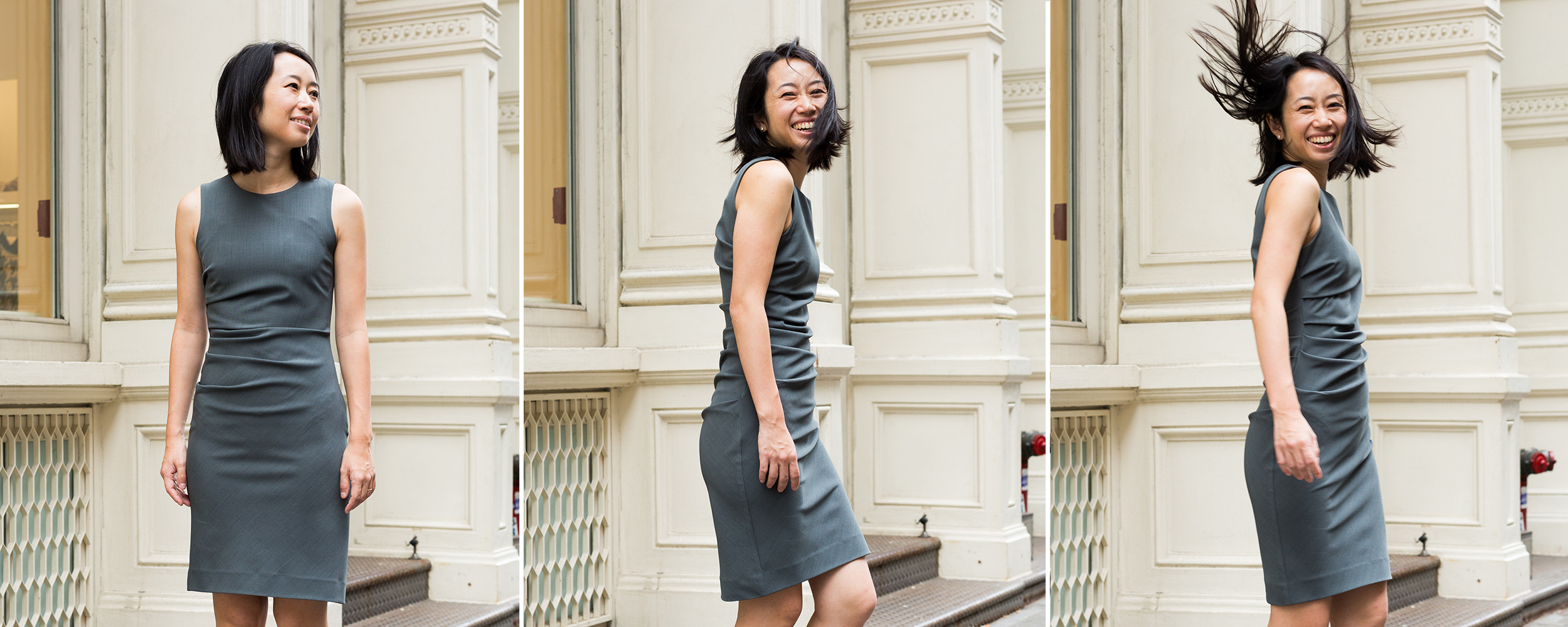
Mariko in the Kira dress in spruce.
I’M A BIG ANIMAL LOVER. I had pets as a kid, and now my husband and I foster dogs that are waiting to be adopted. They usually only stay for a little while, but we had one for about ten months earlier this year. We were sad to see her go, but she has a really good home now.
I GREW UP in Tokyo. I didn’t always know I was going to be a lawyer, but I wanted to do something—I mean, this sounds so generic, but I wanted to do something that would help people and society. I didn’t have a great sense of what my employment options would be in that area, at least at first. During college, I did some internships at legal services organizations, and that really cemented my desire to go to law school.
I TOOK TWO YEARS OFF between college and law school. I was in Tokyo for the first year, and China for the next one. I was actually supposed to be in China for both years, because I had a fellowship to go teach English there, but the first year got canceled because of SARS, right around the time of my graduation. It was definitely a disappointment at the time, and I ended up going home instead. Then the fellowship started up again the next year, and I loved it. I lived in the school where I taught, and I got to know the students really well. I still keep in touch with some of them, and a number of them have come to study in the United States. My Chinese isn’t as good as it used to be; I spoke more languages before I went to law school. Now it’s mostly just legalese.
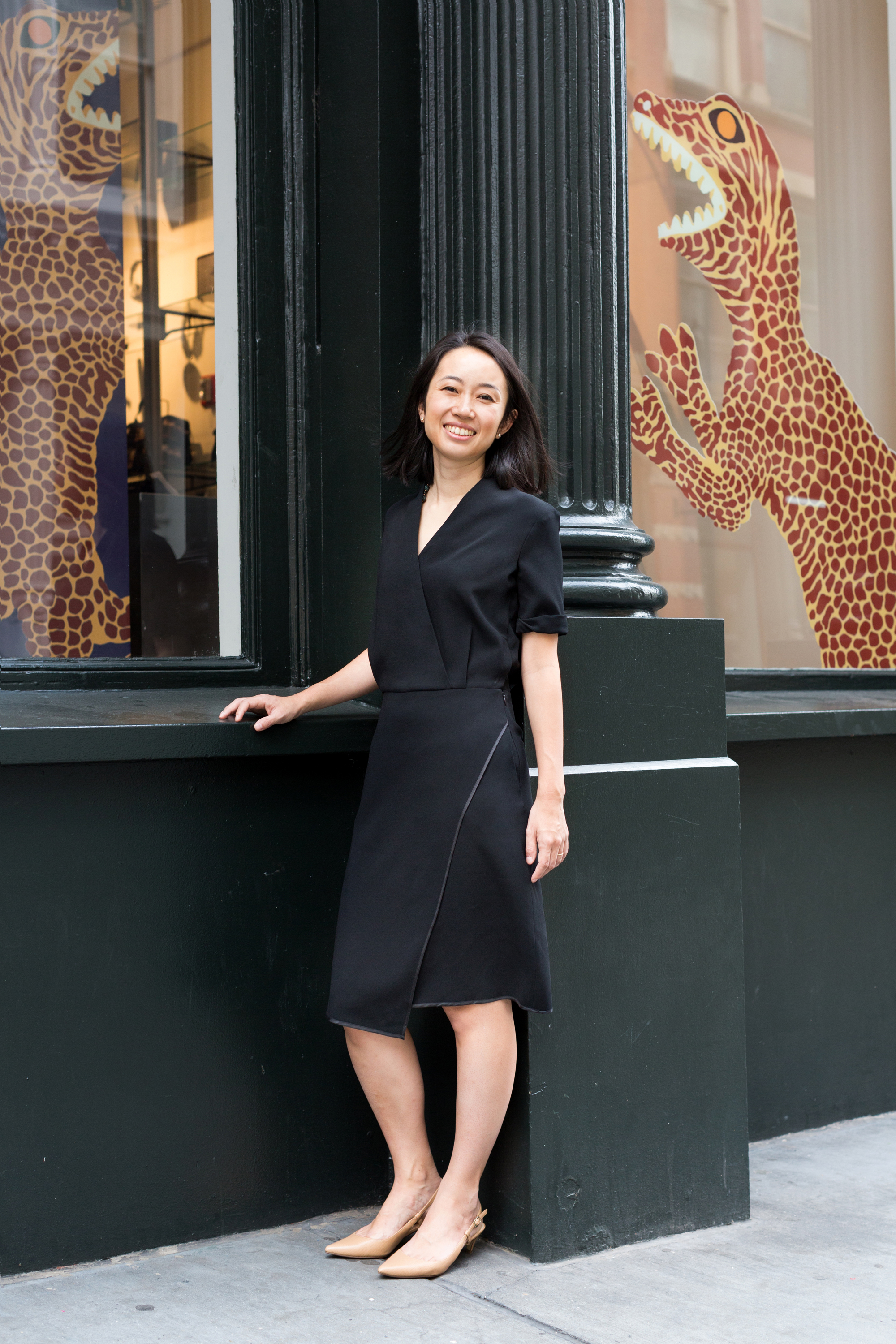
Mariko wears the Tory dress.
I CLERKED FOR A JUDGE right after law school, and then I got a one-year fellowship at the ACLU. That’s where I started doing privacy technology work. After that ended, I went to a law firm that specialized in civil rights, specifically the employee side of employment law. I worked on a couple of large gender discrimination class-action cases concerning women being discriminated against in the workplace, and that felt very impactful. Then, after I moved to the NYCLU, I was on the litigation team in United States v. Windsor, the case that invalidated the Defense of Marriage Act. I was just a small part of a huge team, but it was so historic and amazing to have had a hand in that.
REPRESENTING WOMEN in gender discrimination cases definitely taught me the importance of both advocating for myself and others for a better and more equal workplace. It gave me a lot of confidence.
IF I’M GOING TO COURT, I wear a black suit. I make a big effort to look sophisticated, because people often think I’m younger than I am. I usually wear heels, although I still haven’t quite figured out what to do about shoes in the winter.

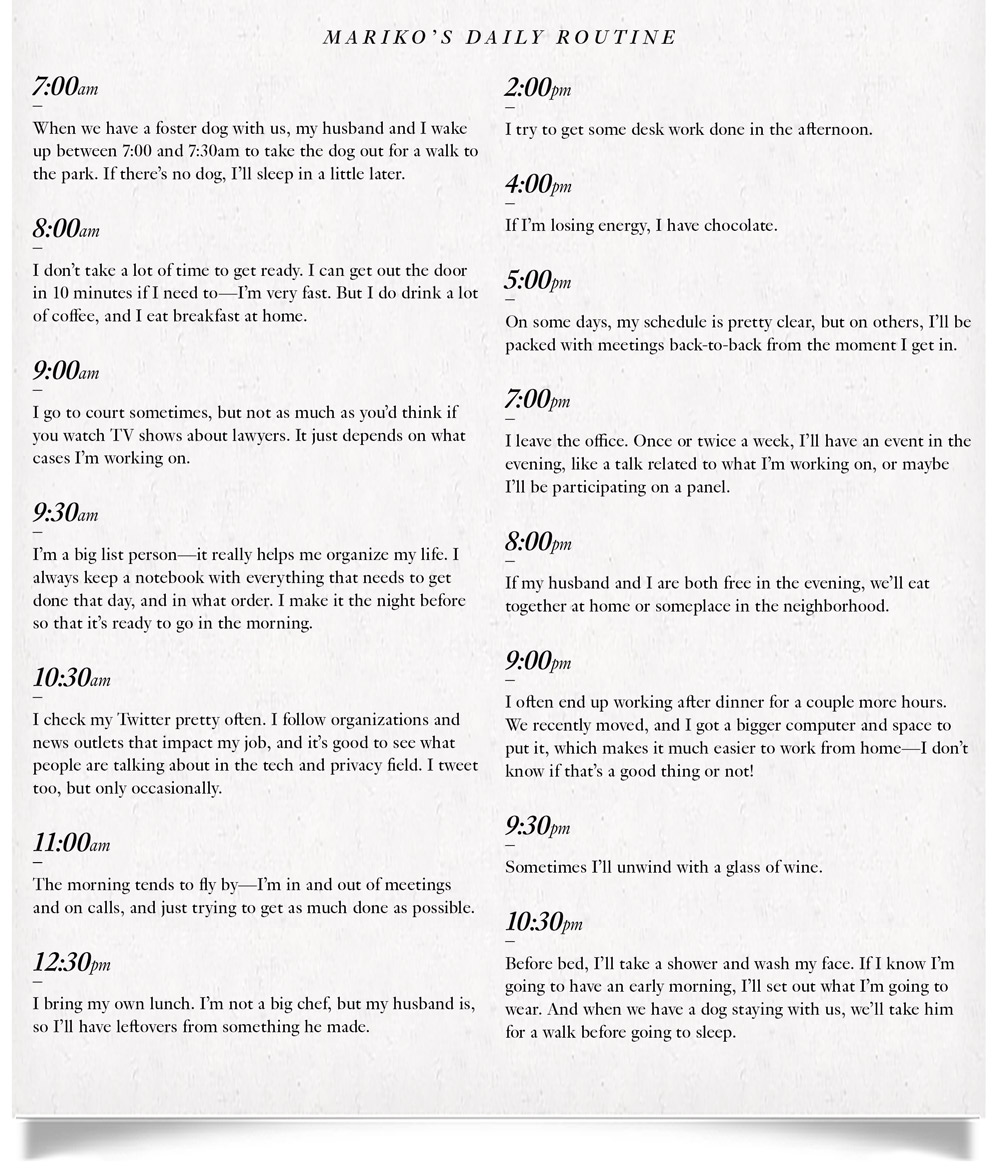
Photos by Frances F. Denny.





